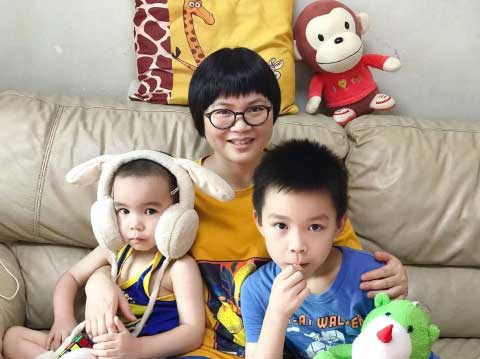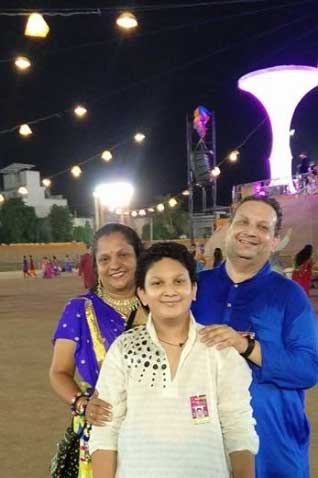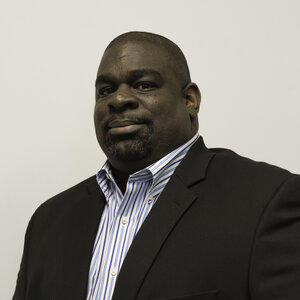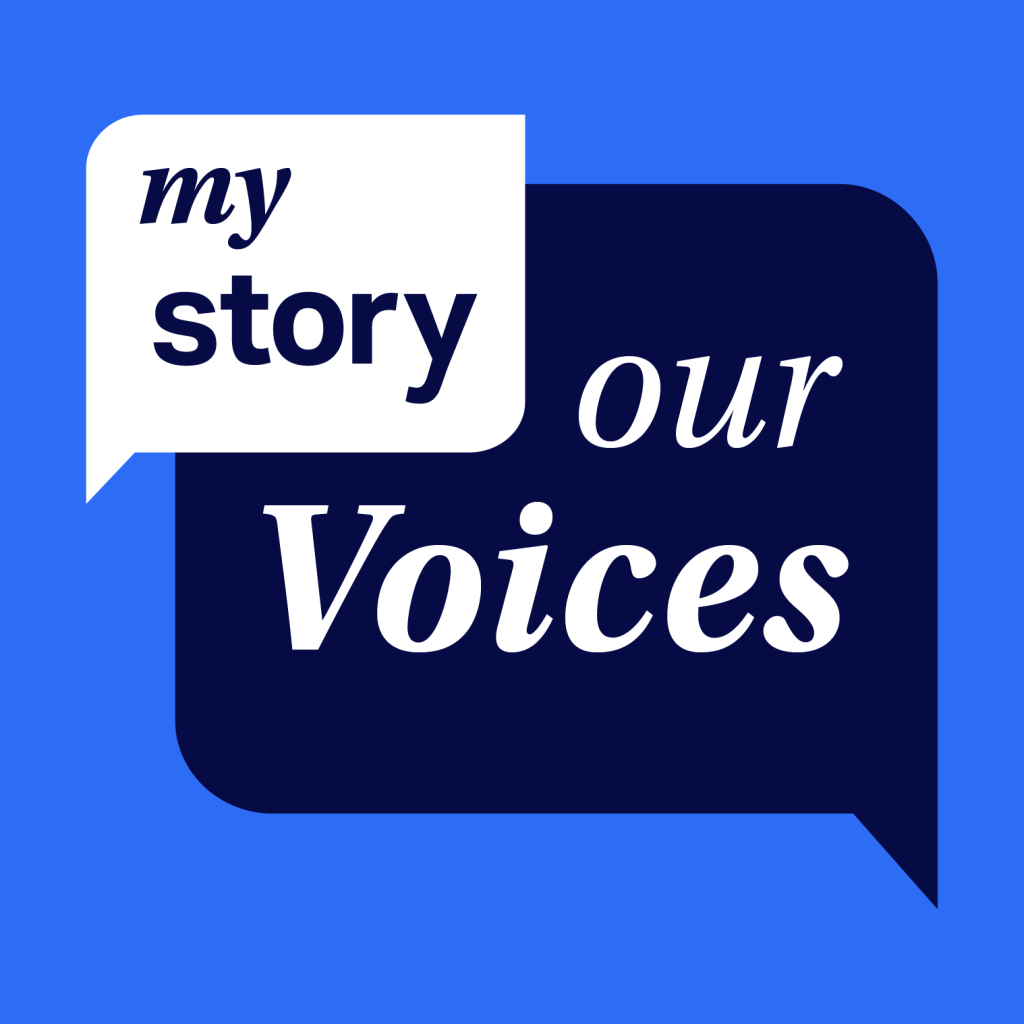Wendy & Sonu
Join hosts James and Myriam on this episode of My Story Our Voices, an NIQ DEI podcast, as they sit down with guests Wendy Zheng & Sonu Shah to discuss finding joy in motherhood through advocating for your authentic path.


Wendy Zheng
Senior Specialist Guangzhou, China
Wendy is from Guangzhou, China and joined Nielsen BASES Ops 5 years ago. She is the mother to an 8 year old and 2.5 year old and enjoys spending quality time with them. In her free time, Wendy can be found outside in nature or writing in journals which she has done since childhood.

Sonu Shah
Director, Retailer Vertical
Sonu has over 20 years of Nielsen experience and is currently a Customer Success RV lead for India. She is very involved in DEI, leading the Nielsen Cares team (volunteering), NGID and India ADEPT (Abled and Disabled Employees Partnering Together). Because of her work in DEI she was recognized as a DEI champion for South Asia in 2020. Sonu is also a mother to her 16-year-old son, Vidur.

Terrance Bacchus – Cincinnati, Ohio, USA
Vice President, New Customer Success ELP
Terrance has been with NielsenIQ for 2 years after 20+ years at General Mills. His interests include giving back to the community, inspiring and coaching young people to seek financial empowerment by being resilient and making smart choices.
Wendy recommends reading this report on Women at Work
Women at Work
Transcript
The views and opinions expressed in this podcast belonged to the individuals who shared them and do not necessarily represent Nielsen IQ. Note that this podcast discusses sensitive topics that may be triggering for some. For more information specific to this episode, see the episode description.
Laura Batien: Hi everyone and welcome to My Blank Story. My name is Laura Batien and if this is your first time tuning in then let me tell you what this podcast is all about. In a nutshell, it’s about stories. Your stories. We think stories are important because when we tell them we open the door and allow others to see the experiences that shaped us. That challenged us and helped us grow. By doing this, we can create a culture where open dialogue is encouraged and we can have the space to discuss important topics in a transparent and courageous manner, so minimize that e-mail tab, mute chat and take a little break to listen to a NielsenIQ story.
Myriam Vidalon: Hello Nielsen, thank you. Thank you for tuning into My Blank Story podcast, sponsored by Diversity, Equity and Inclusion. My name is Myriam Vidalon, and my pronouns are she, her, hers? I am the chief diversity, talent and culture officer at NielsenIQ and one of the co-hosts of My Blank Story podcast series. I’m not alone. I’m joined here by James Anderson who is my partner in crime, James.
James Anderson: Thank you Myriam. My name is James Anderson, and my title is senior analyst, customer service and manufacturing for Canada G13. And my pronouns are he, him and his. I am so excited to be part of this podcast that creates a safe space for our associates to tell their stories.
Myriam Vidalon: I’m extremely excited as well, James, should we go get our first guest?
James Anderson: I think so.
Myriam Vidalon: Let me introduce Sonu Shah. Sonu has over 20 years of NielsenIQ experience and is currently a customer success RV lead for India. She is very involved in DEI leading the NielsenIQ, people and Planet volunteering team and. India’s adept, which is our abled and disabled employees partnering together ERG. Because of her work in DEI, she was recognized as a D&A champion for South Asia in 2020. Sonu is also a mother to her 16-year-old son. Sonu…
Sonu Shah: Good morning, good afternoon and good evening, everyone. We all talk about work life balance, but in reality, is it the case? Wait, let me share with you my story. My small incidence when I was on a maternity leave. At that time we used to get three months of maternity leave and I was planning to take three more months. So when my kid was just two months old, I got a call from my boss saying, hey Sonu, there is a project that has come up and I want you to lead. I asked him if he can give me a day and I will discuss with my family. I went back, discussed with my husband, my family. To my surprise, everyone was very supportive and even my boss was very supportive. He was open to flexi hours. At that time, working from home or flexi hours were not an option in Nielsen, but my boss gave me that option. That gave me a very good elevation in my career. So this was the time when work took over priority of my family. Few things that I took from this was number one I was thankful to my manager because he at least checked with me. So it’s basically don’t assume when a female candidate is gone on maternity leave or having good opportunity. Please check before assuming for her. A second thing is the flexi hours that Nielsen gave me that was very helpful. Just to conclude on what I said initially, so work life balance. So, there are times where your family take preference and there are times where your work would take preference. I would say don’t hesitate and neither I. I never hesitated. When I look back, I don’t regret that.
James Anderson: Thank you so much for sharing your story. Sonu, we are excited to introduce our 2nd guest Wendy Zang Wendy’s from Guangzhou, China and joined NielsenIQ bases OPS five years ago. She’s the mother to an 8-year-old and a 2 ½-year-old and enjoys spending quality time with them. In her free time, Wendy can be found outside in nature or writing in journals which she has done since childhood. Wendy, please share your story.
Wendy Zheng: Hi everyone, this is Wendy from Guangzhou, and everyone says that becoming a mom can discover a new me and become the best version of oneself. Is this so? Here’s my story. Two years ago, when I returned to work after maternity leave, I experienced some levels of stress and anxiety. At first, I thought it was about me that I can’t face the challenge of working mom when others can handle it much better than me. When I was growing up, I was always told that women should keep low profile that women should do all the housework and women should bear most of the responsibility for raising a child. Meanwhile, long hours working culture is still prevalent. Many employees still overwork and have the fear that if I’m not working hard enough, they might be replaced by someone else who performs better than me. I also worried about maternity bias that many others are facing. I internalized those values unknowingly and began to have self-doubt for myself. But deep down I don’t want to compromise my professional life for family life. What I want is to prove myself as a working mother and do what I can for a more equal workplace culture. But then we have no nursing room. And when I join win and n-gen I reach out to the leaders of both ergs and propose a nursing room in our office. My proposal was accepted, and nursing rooms were set up. I was thrilled and so happy that my voice was heard. To me a nursing room is more than my physical space for new moms. It embodies our identity and a sign of being welcomed. We will no longer feeling guilty of our breastfeeding needs when returning to work but feel welcomed by our company instead. My engagement with ergs and IITs is one of the life changing decisions I have. That I made a decision to try my hardest other things that I love and that I have passion for. That it’s to advocate for a more diverse, inclusive, equal workplace culture. My joy came home, and I celebrated the shared joy with many other amazing people. Joy can go viral. With this new mission in my life, I now understand that my struggle was bigger than me and I am not alone. Here I would like to call out let’s join together to make a difference. Together we can overcome the fear, guilt and anxiety of a working mom. Together we can empower each other for a more equal culture. Together we can make an impact on our society. Let’s lean in together as working moms. Thank you.
Myriam Vidalon: Wendy, thank you so much for such an inspiring story. I really commend you for taking the lead and making sure that you can find your own joy through helping others. Sonu reviewing your story and listening to what you had to overcome, making a decision is never easy. How do you find joy?
Sonu Shah: Yeah, I agree, maybe making decisions are never easy, but generally what I do is I weigh in different aspects on maybe whether at that point of time whether maybe it’s family that needs preference or my career that needs a preference. So, it depends on what stage of time it is. Maybe there’s an incidence, like maybe some time back there was a seminar I was supposed to reach there two days prior to that, just to check that everything is OK. But parallel to me there were two more colleagues going. And then the day prior to that my son’s exams were there. And I used to teach him. So, it was only me who could teach him. So at that time my family took a preference, and I thought maybe there is someone in the office who can replace my low position for the time being and but at home there won’t be anyone. So, whenever I am in dilemma, I take that judgment with my own judgment to understand which preference I should take.
James Anderson: That’s amazing, Sonu I have a question for you as well. What advice do you have for mothers who are making the same decision that you did? I feel like a lot of mothers face that same question about work and life and how to strike the right balance for them and how to find that joy in one or the other or when maybe they can find both. So, what’s your advice to them?
Sonu Shah: My only advice is to be fair to yourself. You’re not a superwoman. Something that is making you happy if maybe joining our office or maybe work makes you happy. Go ahead, it’s OK. Nothing to regret. Maybe you need not be 100% always, yeah, because generally what happened is as a woman, we want to be super woman, we need to do everything at the best, but sometimes it’s OK to maybe balance your life. Maybe put preference on one thing, one angle versus other.
James Anderson: I completely agree. And speaking of our other super woman, Wendy, your story is so inspiring to me, mainly because you brought a lot of other mother’s joy where you work because you created the opportunity to breastfeed in privacy and have a safe space for that. Are you still in touch with or very close to the other mothers at work now that you’ve become sort of their superhero in the office?
Wendy Zheng: Actually, I’m not a superhero to them. Yes, I am just a friend to them. We will talk with each other, we chat with each other when we meet in the office and we will, you know, want to know each other’s babies, it’s just small talk. I really cherish this friendship with other mothers because I do think that we empower each other when we, you know, talking about work and our kids and life. I do think that it is very good to make our workplace more friendly.
Myriam Vidalon: So, Wendy, I do have a question as I hear your story, you know, you went to feeling almost at the bottom where you needed to prove yourself and you felt that what you were doing was not good enough and you had to work all these hours because you wanted to compensate or overcompensate for being a mother. How do you go from those intense feelings t o actually moving up and being able to create change for other or other people in finding your joy. What helped you in that process?
Wendy Zheng: I think the change is not overnight. It takes time and you know when I joined the ergs and gradually then the IIT, I met a lot of people. The amazing people including our IIT lead and another n-gen leader. And you know, they trust me so much. You know, I, I’m just a specialist. Although I joined NielsenIQ five years ago and I would be a senior but still my title hasn’t changed over the years. I didn’t expect they trust me so much. You know. I mean, I joined n-gen two years ago because when I was breastfeeding, I had no nursing rooms. When I joined n-gen, I stopped breastfeeding at the time, but I still saw the need to have a nursing room for our new mums. So, I talked to the n-gen leader, can we have a nursing room in Guangzhou? Because it’s a really tough time for me. When I was breastfeeding, I was busy booking rooms and meeting rooms every day because they cancelled my meeting rooms as I’m not using for business, so I have to check when the room is available. So, I jump in and have a quick breast-feeding pumping and then I quick, very quick and very you know it’s all a mess, so I don’t want other moms to do the same. So, I propose a nursing room and she’s very supportive and talk to women in Nielsen, and together they set up the rooms for us Guangzhou associates. I changed my mind set, although I am so low in title, but I can still speak up right. Speak out. When I apply for the IIT culture team. She’s very supportive. Then she recruited me without an interview. Just an example that they support me, and I saw a friendship, great friendship there. And then gradually I know that I can contribute more in an advocate for our more equal culture, and I don’t have to be working long hours because I can do something more than my daily job.
James Anderson: That’s awesome, Wendy. I’m so glad to hear that. In order to find your joy, you spoke up. You spoke up in order to find a community that supports you. And I mean I can hear your husband now in the background supporting you as well. It really does take a village to find our joy, so asking for it is a big deal. And I think that relates to your story Sonu, about really asking for what you want in order to make that joy happen. One of the things I’m hearing from Wendy’s story is about the notion of support. So, Sonu, when you made your decision to figure out your work life balance. What was the support group like around you, who did you have around you to support your decision?
Sonu Shah: Frankly speaking, I had lot of support, and I was blessed around that because first thing my manager was very supportive because he was open. He picked me as a project manager and he was open to me that I can take small breaks to come home, feed my son. So that flexibility, because at that time working from home was not an option in Nielsen. My family was very supportive. My parents were very supportive. They took care of the kid when I was not around. And once I was back at home and it was like I used to spend 100% of my time with my kids to ensure that I cover up for the day.
Myriam Vidalon: Sonu your story also teaches us that you have to take things one moment at a time, right? What is happening in this moment? What decision can I make in this moment? How do you overcome, for the listeners that are tuning in today, how do you overcome the moment that is not the joyful moment, but you’re in this moment and it just feels miserable. What are some things that you do to help to help yourself move from miserable to joy?
Sonu Shah: Yeah, so there are instances in the life. Maybe when you do multitasking and you need to decide or maybe which to prioritize first. And there are sometimes like things are missing. But what I do is try to create a prioritization list or To Do List. So, I have a habit of creating or having the notepad writing down things on what are the things I need to do today. And based on maybe how the way shapes are put out maybe I change my priorities and then finish the day’s tasks.
Myriam Vidalon: Absolutely thank you Sonu and Wendy for sharing your inspiring stories from owning your decisions, to prioritizing to making sure that you stay true to yourself, and you find a group of colleagues that you can rely on. Your stories have really helped us find good, tangible tips on how to find joy in any situation, every moment at a time. So, we appreciate your time, your openness and your candor. Have a wonderful day.
James Anderson: Thank you Wendy and Sonu for joining us today. Your stories have been truly inspiring.
Sonu Shah: Be fair to yourself, you’re not a superwoman. Generally, what happened there as a woman we wanted to be a superwoman. We need to do everything at the best but sometimes it’s OK to balance your life. Maybe put preference on one thing one angle versus others.
Wendy Zheng: I now understand that my struggle was bigger than me and I am not alone. I would like to call out let’s join together to make a difference.
Laura Batien: Hey all its Laura again. We hoped you enjoyed this episode of My Blank Story. Tune in next time to hear more stories from the NielsenIQ community. Thank you to our producer, Laura Batien and our editor, Angie Arnold-Ott.

